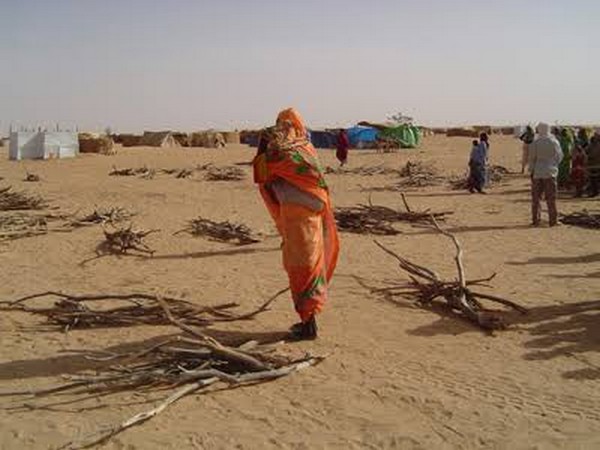Decent Work and Food Security Seen as Pillars of Peace at Geneva Peace Week 2025
Opening the session, Marcus Lenzen, Deputy Chief of the UN Peacebuilding Fund, described the recent adoption of the Pact for the Future as a pivotal moment in global peacebuilding.

At the 2025 Geneva Peace Week, a high-level panel convened by the International Labour Organization (ILO) brought together leading voices from across the humanitarian, development, and peacebuilding sectors to explore how decent work and food security can serve as engines for conflict prevention, social cohesion, and sustainable peace, particularly in fragile and post-conflict settings.
The session, titled "Peace Begins with Livelihoods: Decent Work and Food Security in Fragile Contexts", featured representatives from the UN Peacebuilding Fund, the Food and Agriculture Organization (FAO), Interpeace, and the Danish Refugee Council (DRC) in Sudan. Together, they shed light on practical, community-driven approaches that generate livelihoods, bolster economic inclusion, and rebuild fractured societies from the ground up.
Conflict Prevention and Social Inclusion: A New Approach
Opening the session, Marcus Lenzen, Deputy Chief of the UN Peacebuilding Fund, described the recent adoption of the Pact for the Future as a pivotal moment in global peacebuilding. He emphasized that peace must be nationally owned and locally driven, grounded in the economic and social well-being of communities.
"Peace cannot be imposed," Lenzen stated. "It has to be built with tangible improvements in people's socio-economic well-being, or it risks being ephemeral."
Lenzen noted that the Peacebuilding Fund is increasingly investing in prevention-first strategies that weave together livelihoods, food security, and climate resilience, often in partnership with technical agencies like the ILO and FAO. This integrated approach ensures that peacebuilding efforts are holistic and inclusive, rather than limited to political or security processes.
Decent Work: A Cornerstone of Stability
Nieves Thomet, Humanitarian–Development–Peace Nexus Advisor at the ILO, spoke about the power of employment in restoring dignity and rebuilding fractured societies. She called decent jobs "symbols of dignity, belonging, and stability"—especially for communities emerging from crisis or conflict.
Thomet highlighted a joint ILO–FAO–IOM project in Mauritania, supported by the Peacebuilding Fund, which addresses climate-related tensions through employment creation and dialogue. The project provides pathways to livelihoods while reducing inter-community conflict by helping people work together toward common goals.
"Peace can only endure if communities lead and shape the process," Thomet stressed.
Food Security and Agricultural Livelihoods: Anchors of Peace
Julius Jackson, head of the FAO's Conflict and Peace Unit, explained that up to 80% of people in fragile settings rely on agriculture. When livelihoods are disrupted—by climate, displacement, or violence—the risk of renewed conflict multiplies.
He shared examples from Kenya's Kakuma and Uganda's Kiryandongo settlements, where FAO programs promote joint agricultural ventures between refugees and host communities, building trust and interdependence through shared economic interests.
In Somalia, a unique initiative supported by the Peacebuilding Fund uses digital mapping and geospatial tools to help youth mediate local land and water disputes—demonstrating how technology can empower grassroots peacebuilders.
Local Peacebuilding in Action: Lessons from Sudan
Connecting virtually from Darfur, Ismail Younus Mohammed, Peacebuilding Specialist at the Danish Refugee Council, and Alrasheed Mohammed Eisa, Head of the Peace and Reconciliation Committee in Central Darfur, offered powerful testimony on how community-led efforts are sustaining peace in the absence of formal governance structures.
"We focus on harmonizing community life so that people can continue to live and work despite the violence," said Mohammed.
In many areas, local peace committees have successfully reopened roads, mediated ethnic disputes, and helped restore livelihoods, demonstrating that local solutions can often fill the vacuum left by failing state institutions.
The Economic Foundations of Peace
The panelists unanimously agreed that inclusive economic recovery is indispensable for durable peace. Without tangible benefits—such as jobs, food security, and access to services—communities will remain vulnerable to unrest and disillusionment.
Federico Negro, Senior Specialist for Coordination and Crisis Response at the ILO, captured the session's core message succinctly:
"Tangible peace dividends—jobs, food, dignity—are what transform peacebuilding from an aspiration into a lived reality."
Panelists emphasized the importance of gender-responsive and youth-inclusive approaches, ensuring that women, young people, and displaced populations are not sidelined but are instead empowered as agents of peace and development.
Looking Ahead: Scaling Up and Strengthening Partnerships
The session concluded with a call for greater investment in integrated, locally rooted peacebuilding efforts. Speakers urged the international community to scale up joint programs that bridge humanitarian assistance, development aid, and peacebuilding—a "triple nexus" approach that reflects the complex realities on the ground.
By linking economic opportunity with social cohesion, and ensuring that communities are active participants rather than passive recipients, the global community can foster peace that is not only sustainable but also just and inclusive.
ALSO READ
-
EU and ILO Launch New Project to Build a Fair, Inclusive Labour Market for Ukraine’s Recovery
-
New ILO Report Finds Disability-Inclusive Care Policies Boost Productivity and Retention
-
India's Forests Among Top Global Carbon Sinks, Says FAO Report
-
Max Tuñón Takes Office as New ILO Country Director in Bangladesh
-
Indonesia’s Dairy Sector Goes Digital: OJK and ILO Partner to Empower Farmers





